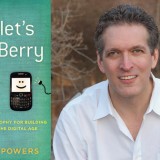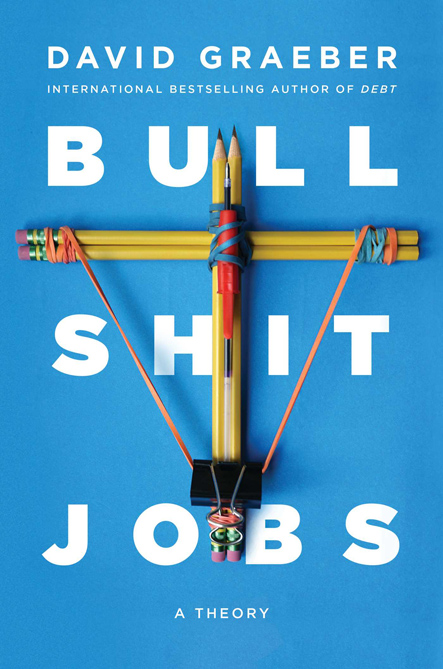
The book can be boiled down to this: thou shalt schedule uninterrupted blocks of time to focus on single, important tasks. And, yes, that includes thinking about how we spend our leisure time too. If you allow incoming texts and notifications to define your day you’ll turn into a human router, pushing around frivolous emails, text messages and silly cat videos.
To give in to these temptations is to train ourselves to be distracted. Alternately, the longer we spend in periods of uninterrupted concentration the easier it becomes to focus. It was Newport’s deconstruction of the Internet Sabbath that won me over. Newport says,
If you eat healthy just one day a week, you’re unlikely to lose weight, as the majority of your time is still spent gorging. Similarly, if you spend just one day a week resisting distraction, you’re unlikely to diminish your brain’s carving for these stimuli, as most of your time is still spent giving in to it.
This is not to say that there aren’t other benefits to putting aside one day and making it different than all the others. But let’s not kid ourselves that an Internet sabbath is going to cure the crack-like addictiveness of social media and click-bait websites. Newport suggests, “embracing boredom” and not surfing the web even when you’re waiting in line at the post office. Rather than schedule time away from distraction Newport suggests scheduling time to give into temptation. Go ahead and surf the web, just do it in a scheduled block of time. We are, after all, human and need to view the occasional cat video (or catch up on Root Simple blog posts!). But we can’t let those cat videos define our schedules and inhibit our ability to focus on a single task.
Newport has a refreshing agnosticism towards our technological future. He’s neither anti-tech nor techno-optimist. He’s of the “right tool for the job” mindset. In a provocative chapter called “Quit Social Media” Newport compares things like Facebook and Twitter to a farmer’s tools and suggests,
Identify the core factors that determine success and happiness in your professional and personal life. Adopt a tool only if its positive impacts on these factors substantially outweigh its negative impacts.
In other words, just because a tool exists doesn’t mean you should use it. I’ve spent a lot of useless time on Facebook in recent years despite the fact that it and Twitter account for less than 5% of the traffic to this blog. Most visitors come from Google. I’d be better off spending focused time writing better how-to blog posts than chasing likes.
Now most of us have to deal with what Newport calls “shallow” tasks, such as responding to emails and going to meetings. For myself and, I suspect, most people reading this blog, we need to adopt one of the middle-ground solutions Newport recommends: scheduling large blocks of time to take on single, important and challenging tasks while not allowing shallow duties to occupy more than 50% of our days. For some, such as the novelist Neal Stephenson, that Newport offers as and example, a more radical disconnection may be necessary. Stephenson doesn’t have an email account. As Stephenson puts it,
If I organize my life in such a way that I get lots of long, consecutive, uninterrupted time-chunks, I can write novels. But as those chunks get separated and fragmented, my productivity as a novelist drops spectacularly.
Lastly I want to give a tip of my metaphysical hat to Newport for acknowledging a non-materialist justification for avoiding distraction. Usually, when the topic of our distracted age comes up, the solutions are all about brain science. Newport throws a bone to us non-reductionist types with an appeal to the sacredness of craftsmanship, honed by long periods of concentration. This craftsmanship can extend to all our work and leisure activities even to mundane tasks like doing the dishes.
Newport has an excellent blog focusing on deep work and study habits here.






There is a similar book called “Time Management For System Administrators” by Tom Limoncelli. People in IT have a need to do long term projects and deal with interruption when thing don’t work. It sounds like this book is more generalized.
Just what I needed!!! Is amazing how an attitude can change so many things in your life or just the simple fact to concentrate in one step at the time. In my case what I needed the most in my darkest moment was meditation, the body is connected with our mind, spirit and soul, and almost all the time we’re not surrounded by easy going environments or situations. I’m an active worker woman, and I didn’t have enough time to get relaxed, and my body was starting to feel it, so I decided to find some way to involve my meditation on my daily basis, and I end up transforming my bathroom into a spa!! It may sound drastic, but let me tell you that it worked!! When I’m in there that’s the moment of the day that is for me myself and I. And now I can see and FEEL the difference.
This very topic has been on my mind of late. Thank you for reading it (the book, so you could tell us about it, and my mind, so that I could be relieved that there’s hope for my flightiness).